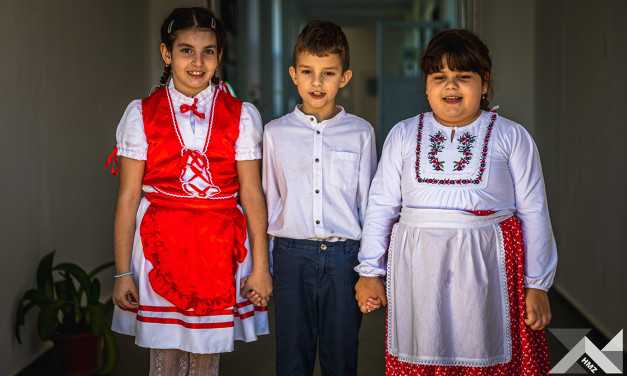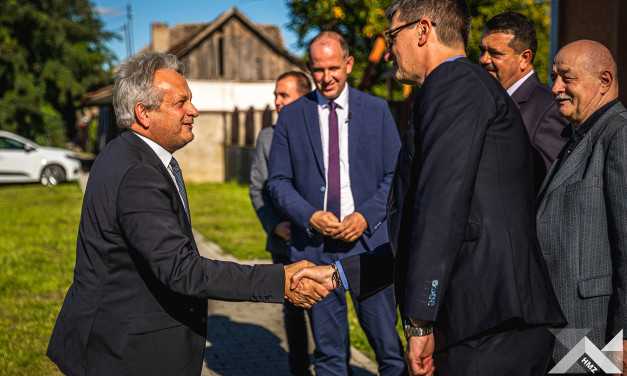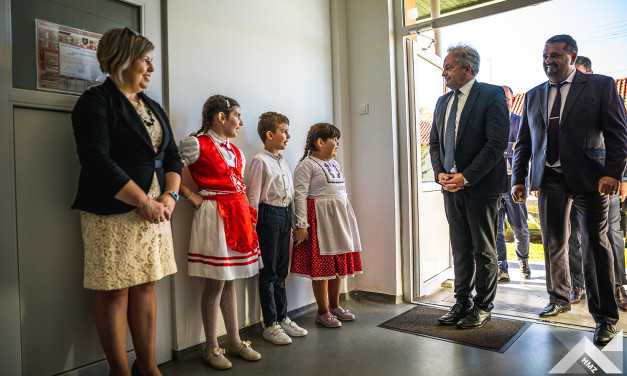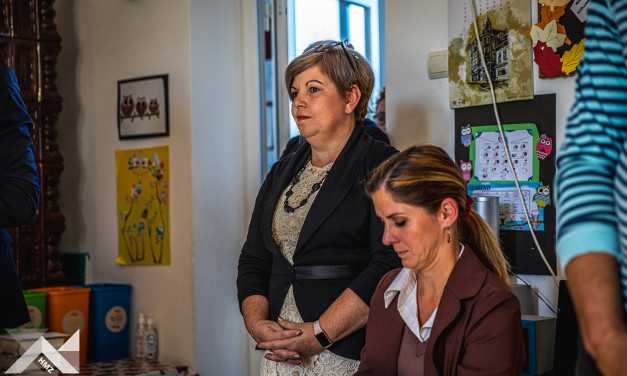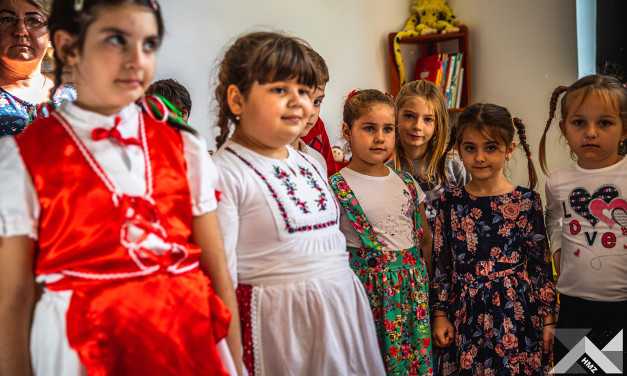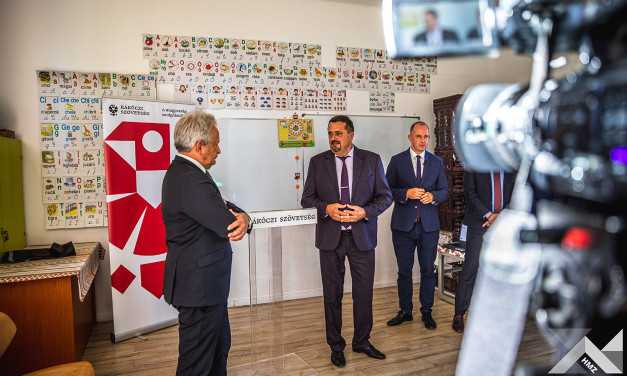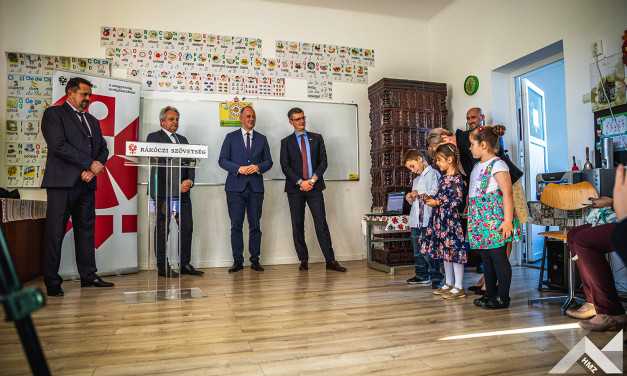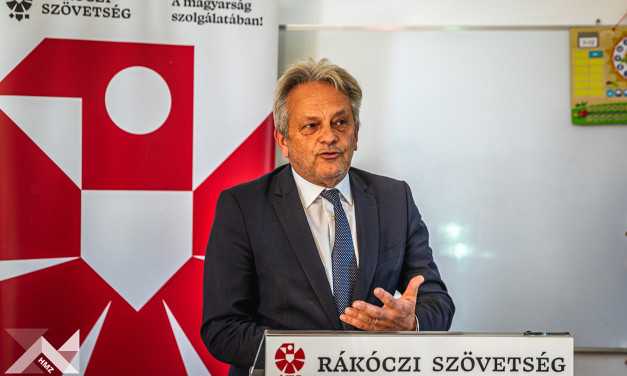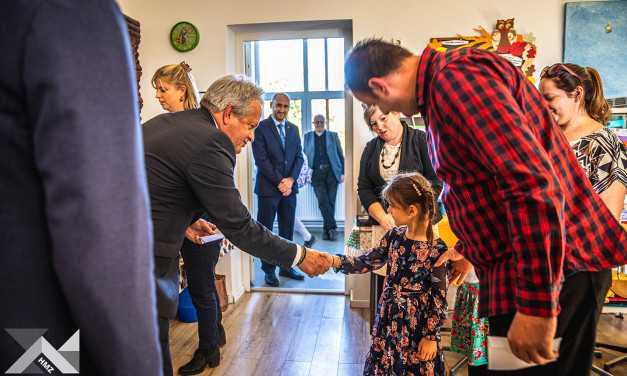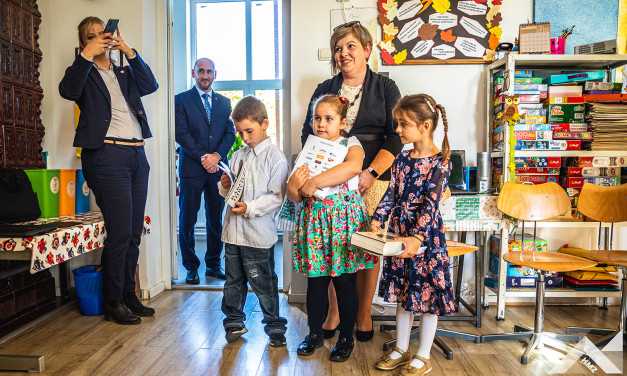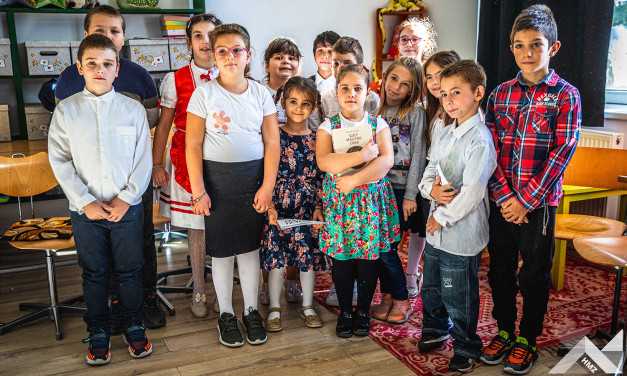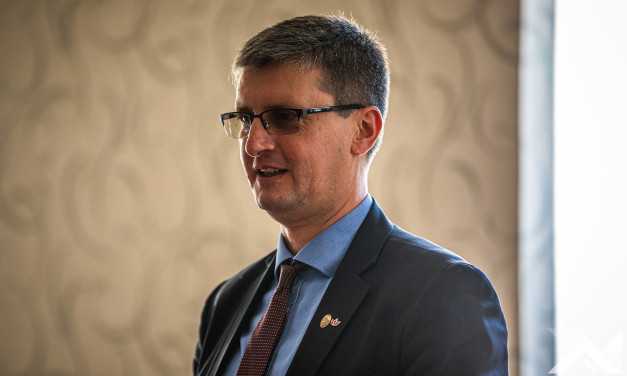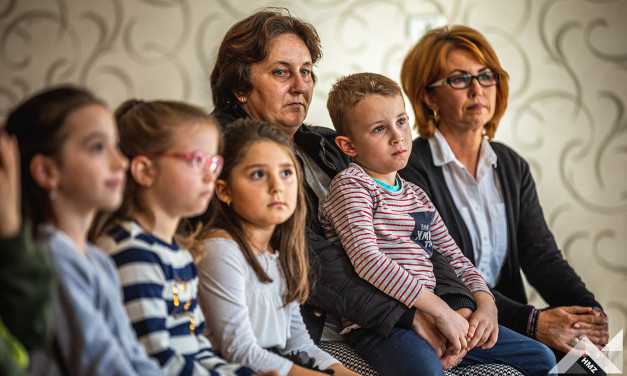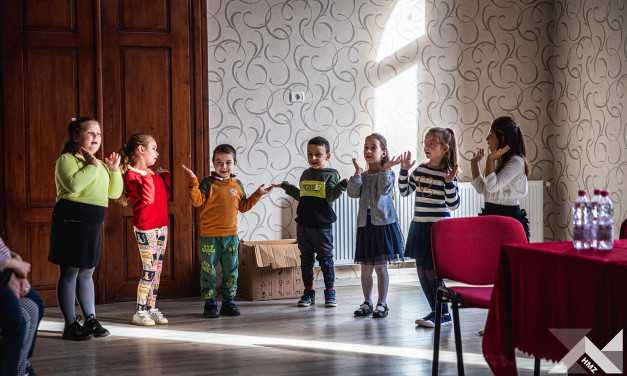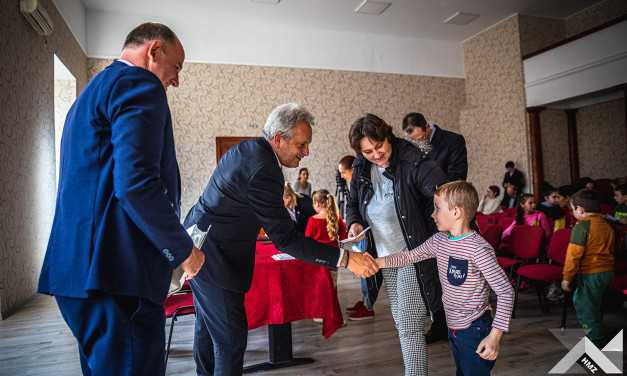Tamás Vargha: Hungarian identity can only be preserved through the Hungarian language
Text: Levente Petróczy | Photo: Kinga Szováthy | 12:45 September 29, 2022On Wednesday, 28 September the Rákóczi Alliance presented grants to first-former and school-preparatory class children in the Hungarian-speaking schools of Pecica (Pécska) and Peregu Mic (Kispereg) in Arad County, Romania. At the grant ceremony, MoD Parliamentary State Secretary and Deputy Defence Minister Tamás Vargha thanked the teachers and the parents for “preserving Hungarian identity” for the children.
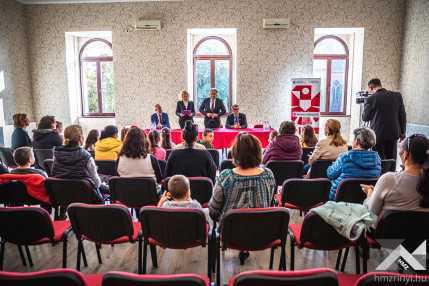
The grant is given to those children who attend Hungarian-speaking schools. In Peregu Mic, the children can learn in Hungarian in the combination class of a Romanian-speaking school, whereas in Pecica, the pupils receive Hungarian-language education in classes organized by forms.
“Hungarian identity can only be preserved through the Hungarian language, which requires Hungarian-speaking schools”, said Tamás Vargha at the grant ceremony. The deputy minister said that being Hungarian is a “superb and uplifting feeling”. Those in the mother country take it for granted that they can experience their Hungarian identity any time, and sometimes they tend to forget how valuable it is. The Hungarian language is the key to achieving that Hungarian people can live at these settlements even in 30 or 40 years from now.
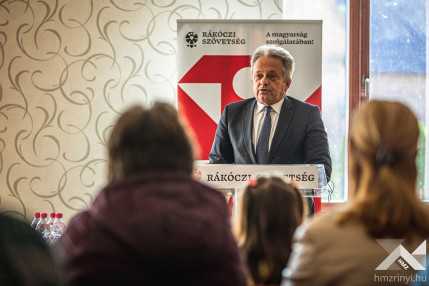
Tamás Vargha expressed his thanks to the teachers, since the financial support would be in vain without the presence of such dedicated and dutiful educators who teach and educate the generation of the future. He said that the Hungarian government does much to enable the Hungarians abroad to keep their Hungarian identity, and today’s event was only a small part of these efforts.
In Peregu Mic, three pupils received the grant. Altogether 17 children attend the elementary school, and 18 the kindergarten belonging to it. Imre Kovács, the mayor of the settlement told us that 98% of the inhabitants of the village are Hungarians. The local government helps the school commensurate with its means, but Hungarian-language education would not exist without the support from the alliance.
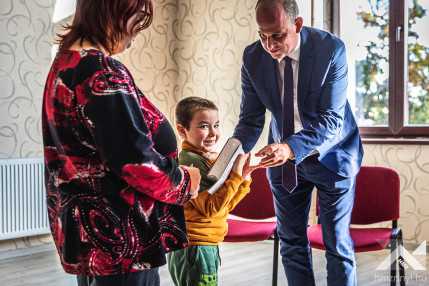
President of the Rákóczi Alliance Csongor Csáky emphasized that the alliance could not function if the public figures and private persons in the mother country did not support it with their donations. Although the grant is symbolic, one must take into account the lots of handshakes, without which they would not have been able to present the children with these envelopes and books.
This September, the grant was awarded to some 9,000 pupils. In areas outside Hungary’s borders, choosing a Hungarian school amounts to the survival of the Hungarian language, culture and community, and last but not least, to the individual’s extra knowledge.
Hungarian-language education is presently available in 926 educational institutions at some 1200 settlements in Romania. Around 60% of the educational institutions are independent Hungarian ones, whereas the rest provides bilingual education. At present, some 120,000 students pursue their studies in Hungarian in the Romanian educational system.
Galéria
